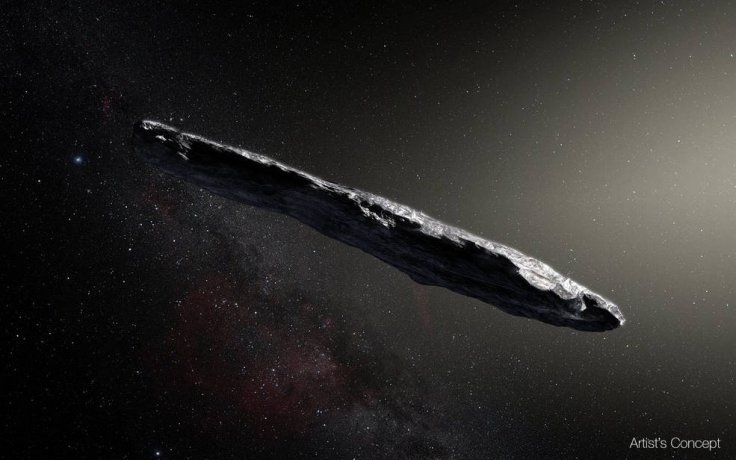
Stephen Hawking, the famous physicist, has stated that the large cigar-shaped asteroid dubbed Oumuamua is something people should be aware of as it could be a part of an alien probe or an unseen natural phenomenon.
"Researchers working on long-distance space transportation have previously suggested that a cigar or needle shape is the most likely architecture for an interstellar spacecraft since this would minimise friction and damage from interstellar gas and dust," Hawking told Daily Star.
The unidentified flying object has been defined as the first-ever confirmed interstellar object in recorded history that flew through our solar system this October. Oumuamua means "a messenger from afar arriving first" in the Hawaiian language.
"While a natural origin is more likely, there is currently no consensus on what that origin might have been, and Breakthrough Listen is well positioned to explore the possibility that Oumuamua could be an artefact," he added.
The interstellar space rock is quite popular amid astrophysicists, astronomers and conspiracy theorists due to its unknown origin.
The researchers from SETI (Search for Extra-Terrestrial Intelligence) had also planned recently to turn a powerful dish telescope towards this mysterious cigar-shaped asteroid.
Hawking made the statements based on the findings from the largest-ever scientific research programme, Breakthrough Listen, which aims at finding proofs regarding civilisations beyond Earth.
Breakthrough Listen is a £74 million project focuses on tracking the movement of the interstellar asteroid. It uses the world's largest manoeuvrable radio telescope.
"The chances that we'll hear something are very small, but if we do, we will report it immediately and then try to interpret it," Avi Loeb, professor of astronomy at Harvard University and a member of the Breakthrough Listen initiative said.
"It would be prudent just to check and look for signals. Even if we find an artefact that was left over and there are no signs of life on it, That would be the greatest thrill I can imagine having in my lifetime."
"It's really one of the fundamental questions in science, perhaps the most fundamental: are we alone?" Loeb added.









